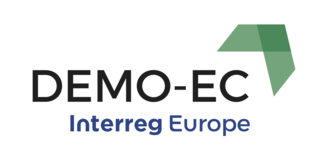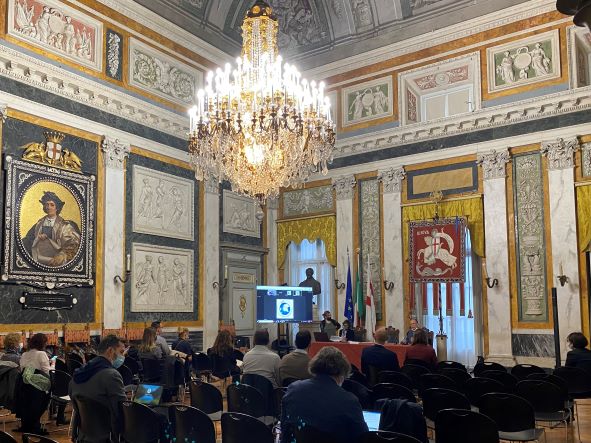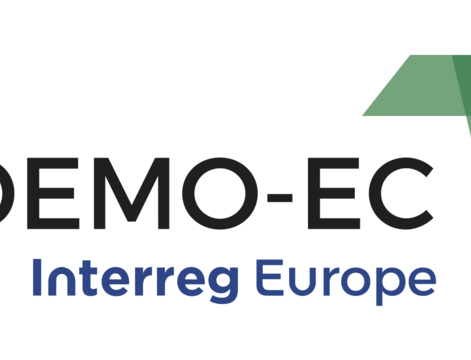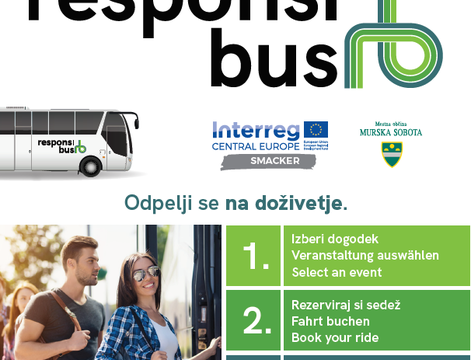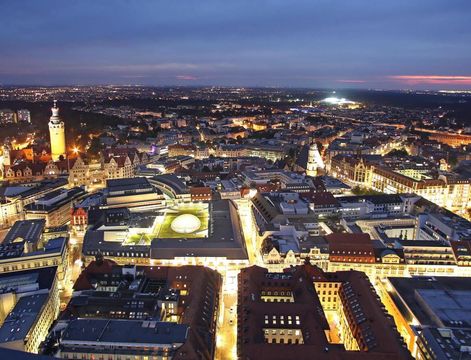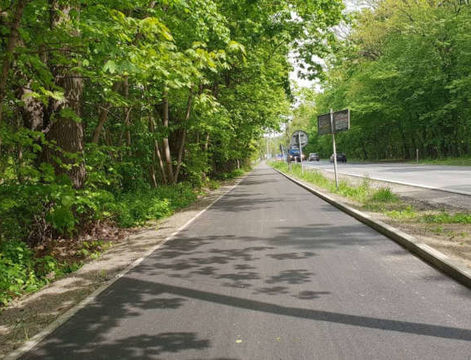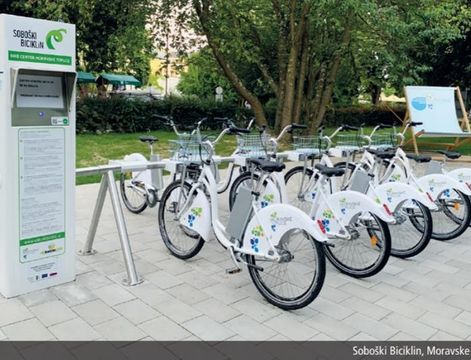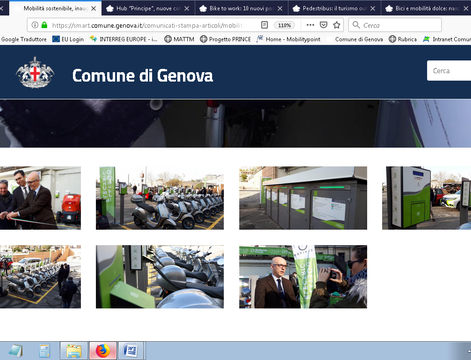The final high-level dissemination event of the DEMO-EC project took place in Genova, in beautiful Palazzo Tursion on October 21, 2021. Due to the uncertainty of the situation of the COVID-19 pandemic, the event was organized both in presence and online. Next to all project partners, the event was attended by stakeholders with a total of 23 people participating in person and 29 online.
The objective of the event was to have a moment of discussion and dissemination on the successful measures implemented in the partner regions on the topics of cycling, e-mobility and public transport within the DEMO-EC project. These topics proofed to be particularly relevant within the overall DEMO-EC topic of sustainable mobility and mobility management.
In a first step, the event was officially opened by the Director of the Mobility and Transport Department of the Municipality of Genova, Ms. Maria Cristina Carmeli, who also introduced the region in a vivid presentation.
After the presentation of the lead partner and Finance Offricer of the Joint Secretariat event continued with thematic presentations from the partner regions about the focus topic cycling, e-mobility and public transportation.
Exchange on success stories: CYCLING
Bicycle office and cycling in Genova
To open this thematic session, Ms. Alessandra Vindigni from the Municipality of Genova, Italy, presented the municipal cycling policies and new actions. These actions included the Bici Plan, a Smart Mobility Office as well as an urban cycling network. She shared new cycling initiatives, such as new bike lines and cycle paths being implemented as well as the development of designated bike parking spaces.
Bicycle rental system
Ms. Tadeja Horvat from the Development Agency Sinergija, Slovenia, continued by sharing successful measures from Pomurje region. Here, a bicycle rental system was established and expanded. Thanks to this system, new infrastructure was created that enables a sustainable cycling connection between urban and rural areas in the region. The promotion of cycling led to more livable rural areas, a healthy lifestyle and the reduction of CO2-emissions.
Biking in the city center
Cornelia Kreymann from the City of Leipzig, Germany, presented biking initiatives in the Leipzig city center. The goal was the reduction of vehicle traffic on Promenadenring and the roads leading to it. This goal was partially achieved by bike paths being implemented in several locations. Yet, to open the entire Promenadenring to bicycle traffic, complex planning processes must continue to ensure the necessary safety regulations, e.g. raffic lights being adjusted. The change process is supported by events, such as the celebration of World Bicycle Day and the implementation of “Ring free - Car free promenade ring” in the city center.
Exchange on success stories: E-MOBILITY
E-mobility in the Genova
Ms. Paola Debandi from Genova Municipality shared a presentation about e-mobility services and infrastructures planned in the city. To improve e-mobility, the e-charging network is being expanded throughout Genova. Other initiatives, such as the Elviten project, which supports the realization of e-hubs for light vehicles, ELETTRA, an e-car sharing service, bike sharing services and an experimental e-shuttle for the historical city center support the sustainable mobility development in Genova.
E-charging network in the region
Following this, Ms. Asia Giavoni from FAMCP in Spain presented the developed e-charging network in the Aragon region. The establishment of the e-charging network had the goal to support sustainable transport and thus reducing emissions. Different types of charging points (standard, quick, fast) could already be established and the network will be expanded further in the coming months.
Exchange on success stories: PUBLIC TRANSPORT
Connectivity of urban and rural areas
Tadeja Horvat, from the Development Agency Sinergija in Slovenia presented initiatives from Pomurje region to improve the accessibility of rural areas. With the number of cars increasing and the number of passengers of public transport being low, actions were necessary to encourage sustainable mobility. A mean of public transport is the city bus with two lines running. The modern vehicles run frequently and are also connected to other bus lines. Another invention is the responsi bus, which aims at improving the mobility of residents and tourists in the region. Its services are particularly linked to local events and their easy accessibility by public transport. Integrated tickets for various means of public transport are foreseen for the future.
